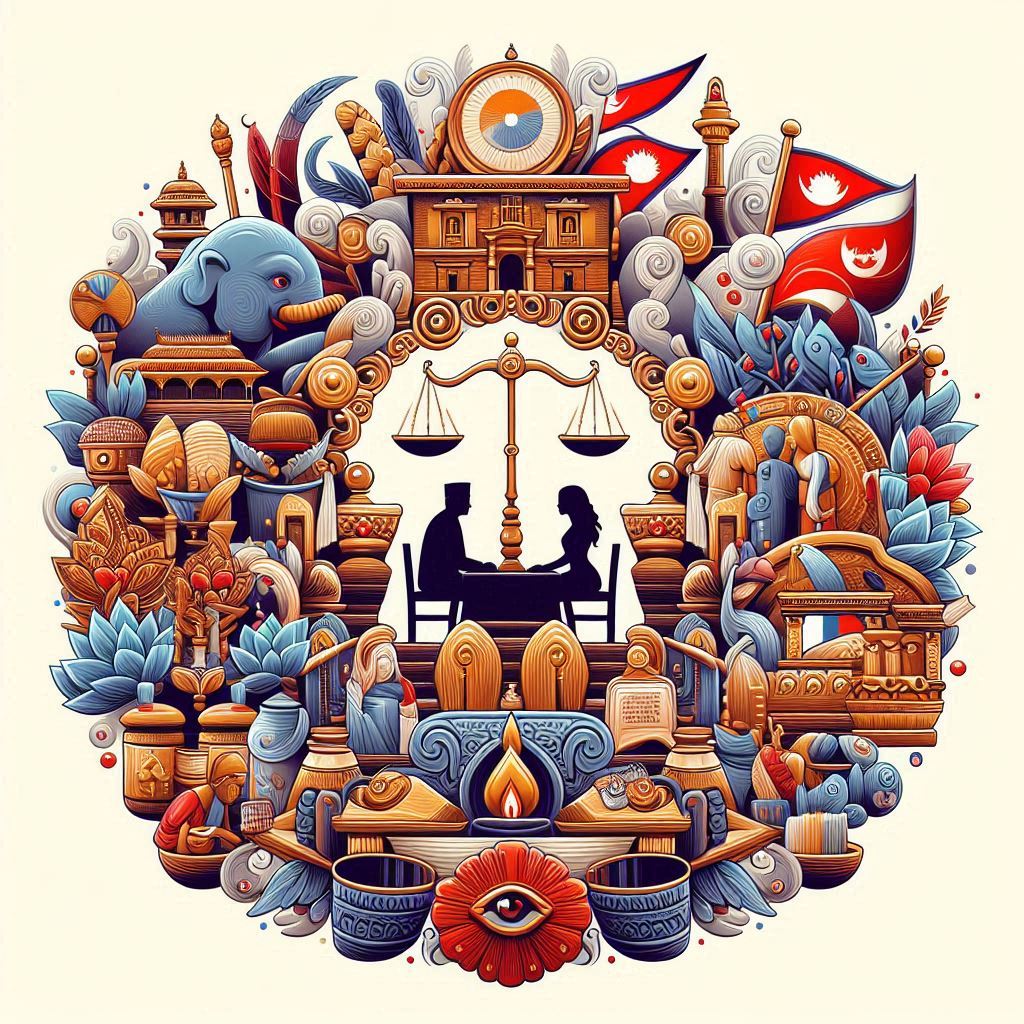
Legal Provisions for Interfaith Marriages in Nepal:
- Inter-caste Marriage: Inter-caste marriage (Nepali: अन्तरजातीय विवाह) refers to marriages that occur outside of one’s caste. While Nepal has many castes, inter-caste marriages have gradually gained acceptance over time.
- Historical Context:
- In 1854, the Government of Nepal enacted the “Muluki Ain” commissioned by Jung Bahadur Rana, which prohibited marriage between people of different castes.
- In 1963, King Mahendra modified the law to abolish “caste-based unequal citizenship.”
- Constitutional Rights:
- The Constitution of Nepal (2015) guarantees every person the right to marry according to their choice, without discrimination based on caste or ethnicity.
- It also ensures equal rights and opportunities for all citizens, regardless of their caste or ethnicity.
- Civil Code (2017):
- Provides legal protection for inter-caste marriages.
- Prohibits discrimination or violence against inter-caste couples.
- States that anyone obstructing or preventing an inter-caste marriage may face a fine of up to रू 30,000 or imprisonment for up to three years, or both.
- Social Challenges:
- Despite legal provisions, inter-caste marriages still face social stigma and challenges in Nepal.
- Families and communities often disapprove of such marriages due to fear of becoming social outcasts.
- Research shows that inter-caste marriages can lead to harassment, forced separation, displacement, and institutional discrimination.
- Brides not accepted by their families are at risk of depression and psychosocial difficulties.
- Incidents of Violence:
- Some incidents involve violence and killings against inter-caste couples.
- For example, in 2004, a Dalit man and an upper-caste woman who eloped were kidnapped by the bride’s relatives, and the Dalit community faced an attack by over 200 upper-caste people.
- In 2020, two Dalit men were killed by villagers when they attempted to marry upper-caste girls.
- Positive Signs:
- Despite challenges, there are positive signs of change and acceptance in Nepali society.
- Some inter-caste couples receive support and recognition from their families and communities.
- NGOs and media outlets raise awareness and advocate for inter-caste marriages.
Legal Requirements for Court Marriage of Interfaith Couples in Nepal:
- To conduct a court marriage of interfaith couples in Nepal:
- Both parties must agree to accept each other as husband and wife.
- They must not be close relatives as defined by the law.
- Both parties must be over 20 years old.
- A matrimonial relationship should not already exist between them.
Remember that interfaith marriages involve legal, social, cultural, and personal aspects. While legal protections exist, societal barriers persist, and awareness is crucial for fostering acceptance and integration. If you need further assistance or have more questions, feel free to ask!


